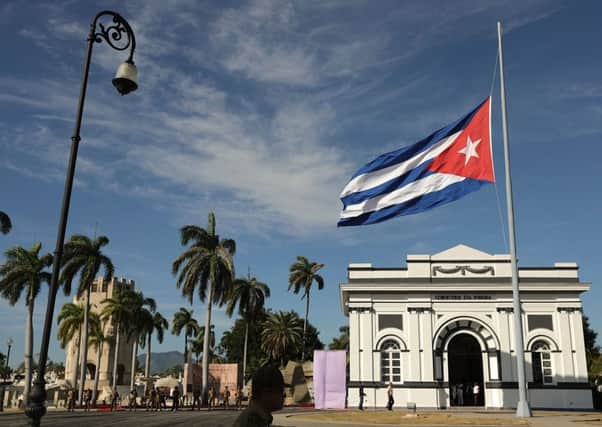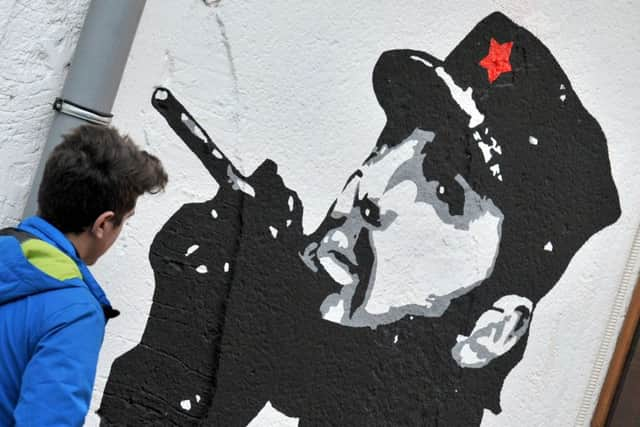World media banned as Fidel Castro ashes interred in private


The remains of the man who ruled Cuba for a half-century left the Plaza of the Revolution in the eastern city of Santiago at 6.39am, more than 20 minutes ahead of their scheduled departure. Thousands of people lined the two-mile route to Santa Ifigenia cemetery, waving Cuban flags and shouting “Long live Fidel!”
After the funeral caravan entered the cemetery, the Cuban military fired a 21-gun salute and crowds at the entrance to the ceremony sang the national anthem, then filled the road to the cemetery where the ashes were being interred inside, out of the public eye.
Advertisement
Hide AdAdvertisement
Hide AdThe decision to hold a private ceremony came the morning after Castro’s brother, President Raul Castro, announced that Cuba will prohibit the naming of streets and monuments after the former leader, and bar the construction of statues of the former leader and revolutionary icon, in keeping with his desire to avoid a cult of personality.


The events ended a week of national mourning for Fidel Castro that reached near-religious peaks of adulation
“The leader of the revolution rejected any manifestation of a cult of personality and was consistent in that through the last hours of his life, insisting that, once dead, his name and likeness would never be used on institutions, streets, parks or other public sites, and that busts, statutes or other forms of tribute would never be erected,” Raul Castro told a massive crowd gathered in the eastern city of Santiago.
Castro died last week at the age of 90.